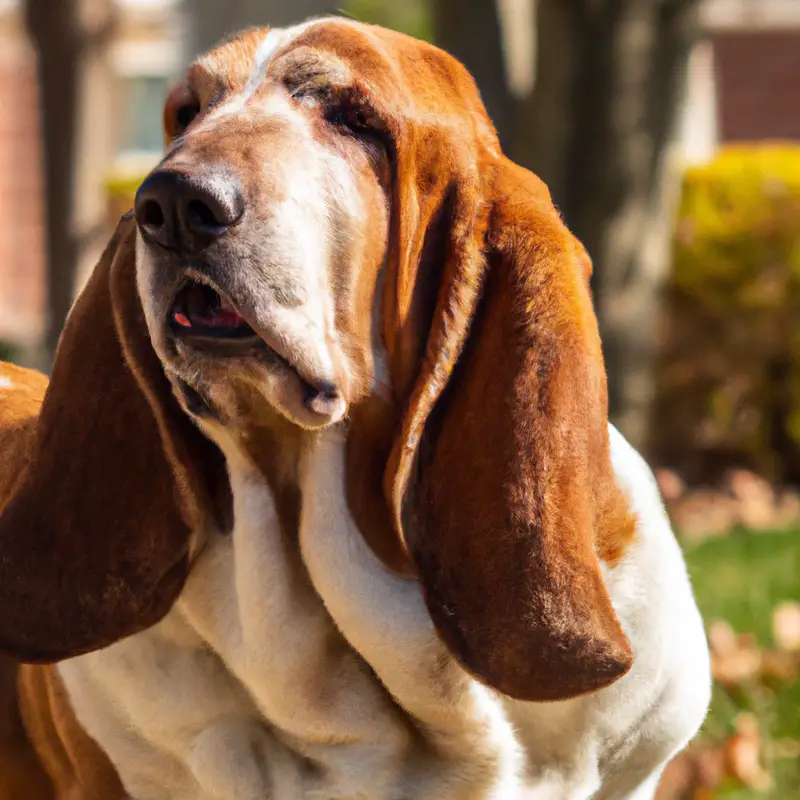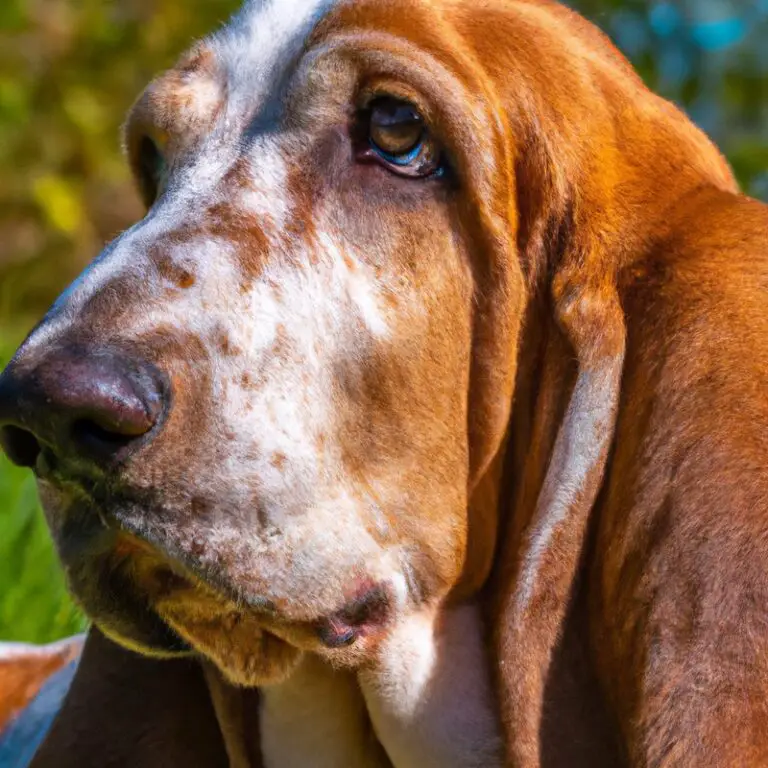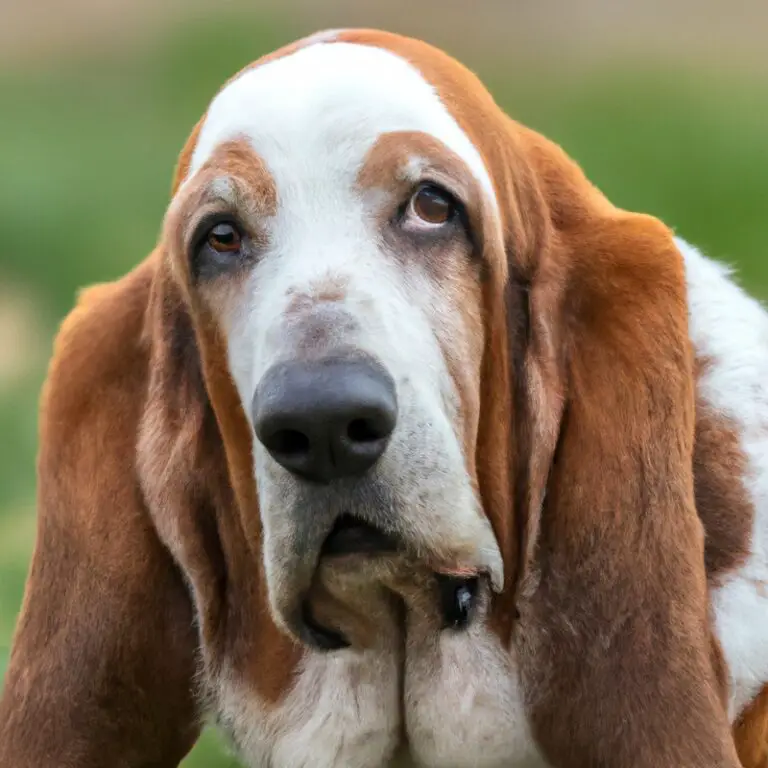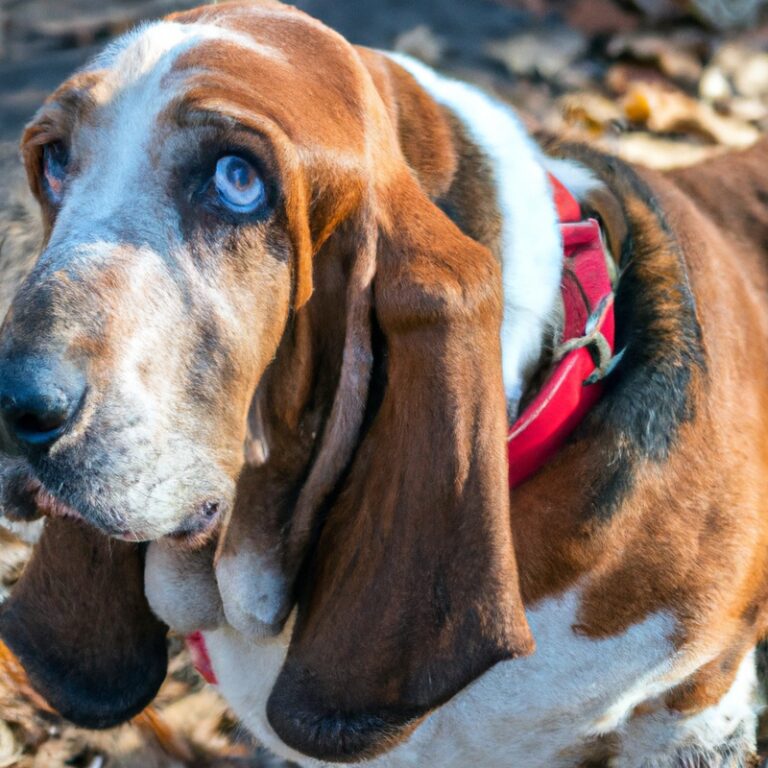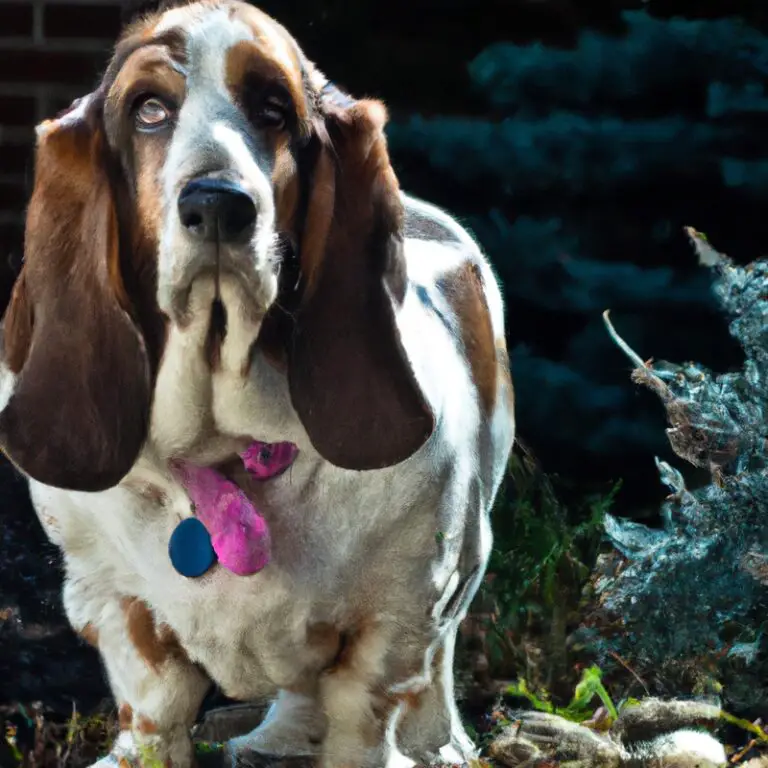How Do Basset Hounds Handle Being Left Alone For a Sabbatical Year?
Key Takeaways:
- Basset Hounds can struggle with being left alone for extended periods of time.
- Separation anxiety is a common issue faced by Basset Hounds when their owners go on a sabbatical year.
- Proper training and introduction to independence can help Basset Hounds cope with being left alone.
- Engaging mental stimulation and providing a safe and comfortable environment are important factors in managing a Basset Hound’s loneliness during a sabbatical year.
Have you ever wondered how your beloved Basset Hound would cope if you were away on a sabbatical year? As a fellow dog lover and experienced Basset Hound owner, I can assure you that leaving your furry friend doesn’t have to be a stressful experience.
In this article, we’ll explore the unique characteristics and temperament of Basset Hounds, as well as effective strategies to prepare and care for them during your time away.
From gradually increasing alone time to finding suitable care and dealing with separation anxiety, we’ll cover it all. So, let’s ensure a smooth and worry-free sabbatical year for both you and your loyal companion!
Understanding the Basset Hound Breed
Characteristics of Basset Hounds
Basset Hounds have some distinct characteristics that set them apart from other breeds. They are known for their long, droopy ears and short legs, which give them a distinctive appearance.
Bassets are also renowned for their sense of smell, as they are scent hounds bred for hunting.
They have a gentle and affectionate nature, making them great family pets. However, they can be stubborn at times, so consistent training is necessary.
Bassets are generally calm and easygoing, but they do require regular exercise to prevent weight gain.
Additionally, they have a tendency to vocalize with their distinctive howls and barks.
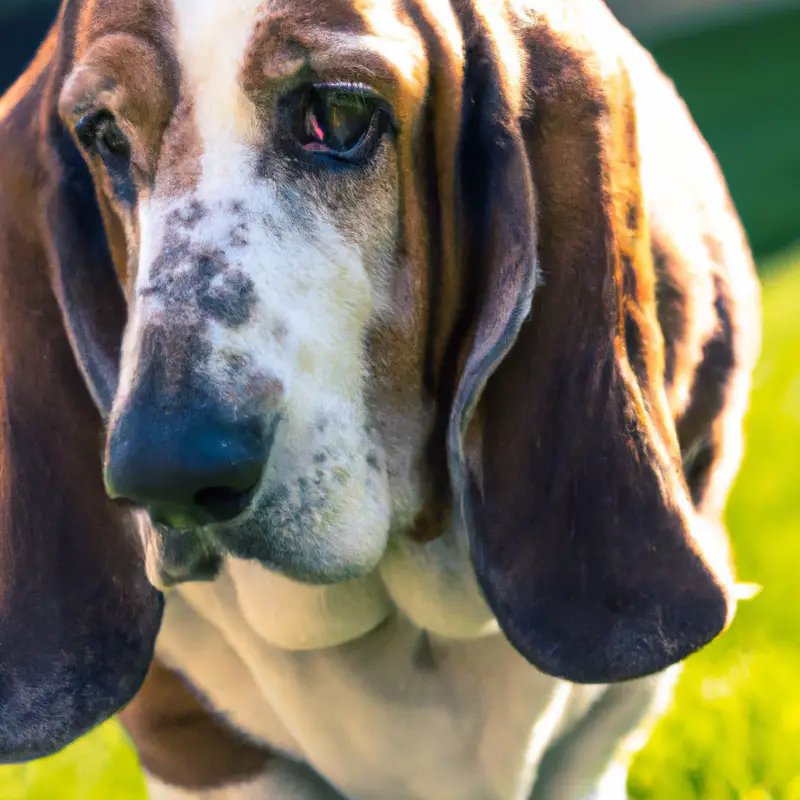
Typical Behavior and Temperament of Basset Hounds
Basset Hounds are known for their laid-back and easygoing nature. They are typically friendly, affectionate, and good with children and other pets.
Bassets are loyal companions and enjoy being part of the family.
They are generally not very active or high-energy dogs, preferring to lounge around and relax. However, they do require daily exercise to maintain a healthy weight.
Bassets also have a strong sense of smell and may follow scents, so it’s important to keep them on a leash when outside.
Overall, Basset Hounds make great companions for those looking for a calm and loving dog.
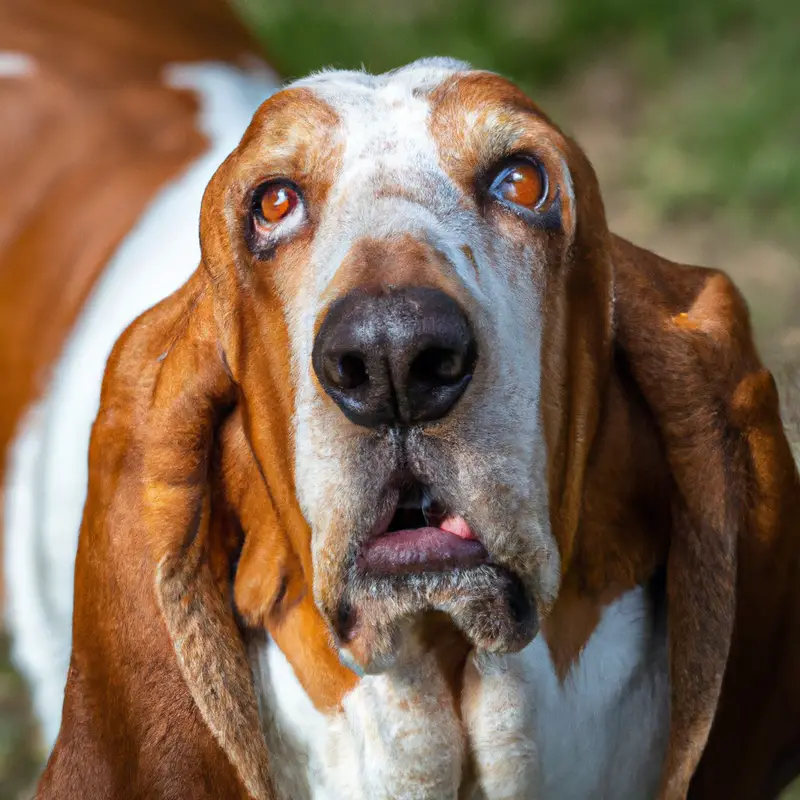
Basset Hounds and Separation Anxiety
Basset Hounds are prone to separation anxiety, which is when they become distressed when left alone. This is because they are a social breed that craves companionship.
To help alleviate separation anxiety in Basset Hounds:
- Gradually increase their alone time, starting with short periods and gradually working up to longer durations.
- Provide a comfortable and safe space for them, such as a crate or a designated area in your home.
- Offer mental and physical stimulation through interactive toys, puzzle games, and regular exercise.
Remember, every Basset Hound is unique, so it’s important to monitor their behavior and seek professional help if needed.
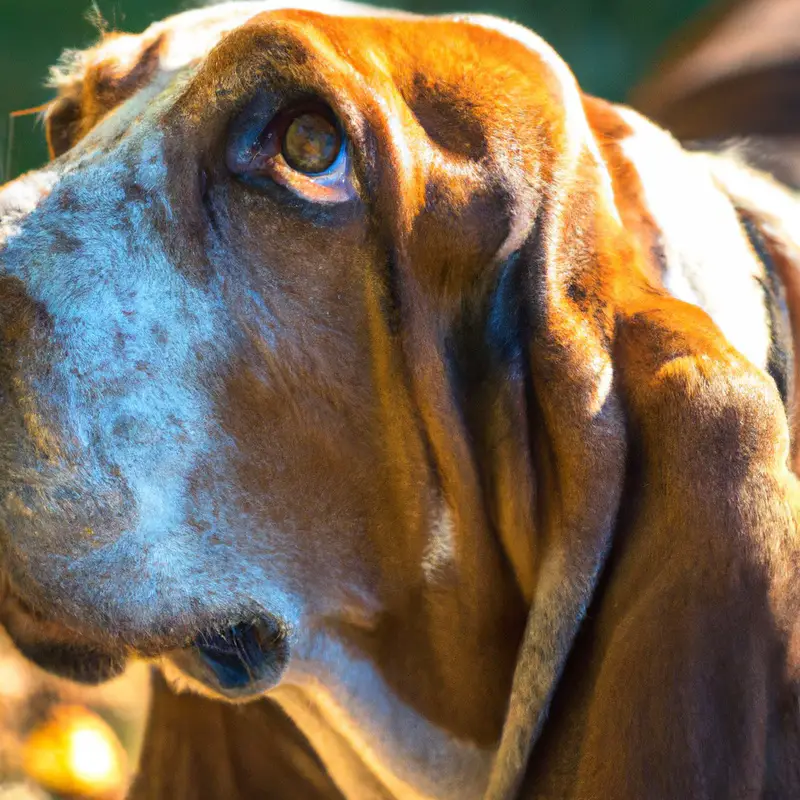
Preparing Your Basset Hound for Being Left Alone
Gradually Increasing Alone Time
One of the key steps in preparing your Basset Hound for being left alone is gradually increasing their alone time. This helps them to adjust and become more comfortable with longer periods of solitude.
Start by leaving them alone for short intervals, and then gradually increase the duration over time.
This allows your Basset Hound to build confidence and reduces the likelihood of separation anxiety. Remember to provide them with plenty of mental and physical stimulation when they are alone, such as toys and interactive games.
Creating a Comfortable and Safe Space
To create a comfortable and safe space for your Basset Hound when you’re away, make sure to choose a designated area where they feel secure and relaxed. Provide a soft bed or blanket for them to rest on, along with some favorite toys for entertainment.
Ensure the space is free of any hazards or potential dangers.
Consider using baby gates to keep them confined to a specific area if necessary. Additionally, leaving some soothing background noise, such as calming music or a white noise machine, can help ease their anxiety.
Providing Mental and Physical Stimulation
To keep your Basset Hound mentally and physically stimulated, you can engage them in several activities. First, take them for regular walks to provide exercise and help prevent weight gain.
Second, play interactive games with them, such as hide-and-seek or puzzle toys, to keep their minds active.
Third, provide them with chew toys to keep them occupied and prevent destructive behaviors. Additionally, consider enrolling them in obedience training or agility classes to challenge their intelligence and physical abilities.
By incorporating these activities into your routine, you can ensure that your Basset Hound remains happy and healthy.
Finding Suitable Care for Your Basset Hound
Researching Boarding Kennels and Dog Sitters
When you’re researching boarding kennels and dog sitters for your Basset Hound, it’s important to consider a few key factors.
First, look for facilities or individuals with experience specifically caring for Basset Hounds, as they have their own unique needs.
Reach out to local pet owners and ask for recommendations or check online reviews for reliable options.
Visit the facilities in person to assess cleanliness, security, and overall environment suitability for your dog.
Ask about the daily routine, exercise opportunities, as well as the qualifications and experience of the staff.
Make sure the boarding kennel or dog sitter has clear policies on medical emergencies and contact information for vet care.
Trust your instincts and choose the option that feels like the best fit for your Basset Hound’s care and well-being.
Hiring a Professional Pet Sitter
When it comes to hiring a professional pet sitter for your Basset Hound, it’s important to find someone trustworthy and experienced in caring for dogs. Look for a sitter who has positive reviews and a genuine love for animals.
It’s also a good idea to schedule a meet and greet to ensure that your Basset Hound feels comfortable with the sitter.
Provide clear instructions on feeding, medication, and any specific needs your dog may have. Regular communication with the sitter and check-ins while you’re away will help give you peace of mind.
Enlisting the Help of Family or Friends
If you’re planning to be away for a sabbatical year and need someone to look after your Basset Hound, enlisting the help of family or friends can be a great option. Not only will the caretaker already be familiar with your dog, but it’s also a wonderful opportunity for your loved ones to spend quality time with your furry friend.
Make sure to communicate your dog’s routine and any specific needs, and provide clear instructions for feeding, exercise, and medications if necessary.
Showing your gratitude and appreciation for their help will go a long way in ensuring a successful arrangement.
Maintaining Routine and Socialization
Stick to a Consistent Schedule
To ensure that your Basset Hound handles being left alone for a sabbatical year, it is important to stick to a consistent schedule.
Dogs thrive on routine and knowing what to expect.
Establish a daily routine for feeding, walking, and playtime.
Try to maintain similar times each day for these activities.
Consistency will help your Basset Hound feel secure and reduce any anxiety they may experience.
Additionally, consider keeping a regular schedule for interactions and socialization with other dogs.
By maintaining a consistent schedule, you will help your Basset Hound adjust and feel stable during your time away.
Keeping Your Basset Hound Physically Active
To keep your Basset Hound physically active, make sure to provide daily exercise through walks or playtime. Basset Hounds have a moderate activity level, so a good 30-minute walk or play session should suffice.
Regular exercise helps prevent weight gain and keeps their joints healthy.
It’s also a great way to bond with your furry friend! Additionally, consider puzzle toys or interactive games that engage their minds while keeping them physically active. Remember, a happy Basset Hound is a well-exercised one!
Socializing with Other Dogs
Socializing with other dogs is an important aspect of a Basset Hound’s life. It helps them develop social skills and build positive relationships.
To socialize your Basset Hound with other dogs, start by introducing them in a controlled environment, such as a dog park or a supervised playdate.
Allow them to interact and observe their behavior closely. Encourage positive interactions and provide treats or rewards for good behavior.
Gradually increase the duration and frequency of these socialization sessions to help your Basset Hound become more comfortable and confident around other dogs.
Dealing with Separation Anxiety
Recognizing the Signs of Separation Anxiety
Recognizing the signs of separation anxiety in Basset Hounds is essential for their well-being. Some common signs include excessive barking or howling, destructive behavior, urinating or defecating indoors, pacing, and excessive drooling.
They may also show signs of distress when you are about to leave or become overly excited when you return.
Keep an eye out for these behaviors, as early detection can help address the issue promptly.
Seeking Professional Help and Training
If your Basset Hound is experiencing severe separation anxiety, seeking professional help and training can be beneficial. A professional dog trainer or behaviorist can provide you with guidance and techniques to help your dog overcome their anxiety and adjust to being left alone.
They may recommend behavior modification exercises, such as desensitization and counter-conditioning, that can gradually help your dog feel more comfortable being alone.
They can also provide you with strategies to create a routine and environment that promotes a sense of security and reduces anxiety. Remember to consult with a professional who specializes in separation anxiety to ensure the best outcome for your Basset Hound.
Using Comforting Aids and Toys
Using comforting aids and toys can be helpful in soothing your Basset Hound’s anxiety when you’re away.
Soft blankets or clothing with your scent can provide comfort and reassurance.
Interactive toys like puzzle feeders or treat-dispensing toys keep them engaged and distracted.
Chew toys can alleviate stress and provide mental stimulation.
You can also try calming aids such as pheromone diffusers or anxiety wraps.
Just make sure to choose toys and aids that are safe and durable for your Basset Hound to prevent any accidents while you’re away.
Keeping in Touch and Ensuring Well-being
Regular Check-ins with Caregiver
Regular check-ins with your Basset Hound’s caregiver are vital during their sabbatical year. It’s important to stay in touch to ensure their well-being and address any concerns promptly.
These check-ins can involve phone calls, video chats, or even in-person visits if possible.
By maintaining open communication, you can stay updated on your dog’s progress, receive any necessary updates, and ensure that your Basset Hound is receiving the care and attention they need while you’re away.
Utilizing Technology for Remote Monitoring
One way to keep an eye on your Basset Hound while you’re away is by utilizing technology for remote monitoring.
With the help of modern devices, you can check in on your furry friend from anywhere.
Some options for remote monitoring include:
- Security cameras: Set up a camera in your home to see live footage of your Basset Hound’s activities.
- Pet cameras: These specialized devices allow you to interact with your dog through audio and video features.
- Smartphone apps: Some apps connect to cameras or specialized devices, allowing you to monitor your Basset Hound’s behavior and well-being.
By utilizing technology for remote monitoring, you can have peace of mind knowing that your Basset Hound is safe and well, even when you’re not physically there.
Addressing Any Health Concerns
Addressing any health concerns is a crucial part of ensuring your Basset Hound’s well-being during your sabbatical year. Regular vet check-ups and vaccinations are essential to prevent and address any potential health issues.
Additionally, it’s important to provide a balanced and nutritious diet to keep your Basset Hound healthy.
Make sure to have a plan in place for emergency medical care, and discuss any specific concerns or needs with your veterinarian. Taking proactive steps to address health concerns will help ensure a happy and healthy year for your Basset Hound.
Reconnecting and Adaptation After Sabbatical Year
Slowly Returning to Normal Routine
To slowly return to your normal routine after a sabbatical year, take it step by step. Start by gradually reintroducing your Basset Hound to their regular schedule and activities.
Stick to consistent meal times and exercise routines.
Offer plenty of love, attention, and reassurance to help them feel secure and comfortable. Incorporate mental stimulation through interactive toys and puzzles.
Allow for socialization by gradually introducing them to other dogs.
Remember, patience is key during this transition period.
Reestablishing Bond with Your Basset Hound
To reestablish the bond with your Basset Hound after a sabbatical year, take it slow and be patient.
Spend quality time together, engaging in activities that your dog enjoys, such as walks or playtime.
Provide extra attention and love, reinforcing positive behaviors.
Use positive reinforcement training methods to build trust and strengthen your bond.
Remember, consistency is key.
Gradually reintroduce your routine and maintain a consistent schedule.
By dedicating time and effort to reconnecting with your Basset Hound, you can rebuild a strong and loving relationship.
Providing Extra Attention and Love
When it comes to providing extra attention and love to your Basset Hound after a sabbatical year, there are a few key things to keep in mind.
Firstly, spend quality time with your dog, engaging in activities they love.
This could include playing games, going for walks, or simply cuddling on the couch.
Secondly, show them affection through physical touch, such as gentle petting and belly rubs.
Thirdly, offer treats as rewards for good behavior to reinforce the bond between you.
Overall, by showering your Basset Hound with attention and love, you can help them readjust and strengthen your relationship.
Final Verdict
Basset Hounds can handle being left alone for a sabbatical year, but it requires careful preparation and consideration. Understanding the breed’s characteristics and addressing separation anxiety are key factors.
Gradually increasing alone time, creating a comfortable space, and providing mental and physical stimulation are essential in preparing your Basset Hound.
Finding suitable care, maintaining routine and socialization, and addressing any separation anxiety signs are crucial in ensuring their well-being. Keeping in touch, utilizing technology, and addressing health concerns are additional steps to take during your absence.
Upon return, reconnecting, reestablishing the bond, and providing extra love and attention will help your Basset Hound adapt and transition smoothly.
Remember, by taking these proactive steps, you can confidently leave your Basset Hound for a sabbatical year knowing they will be well-taken care of.

